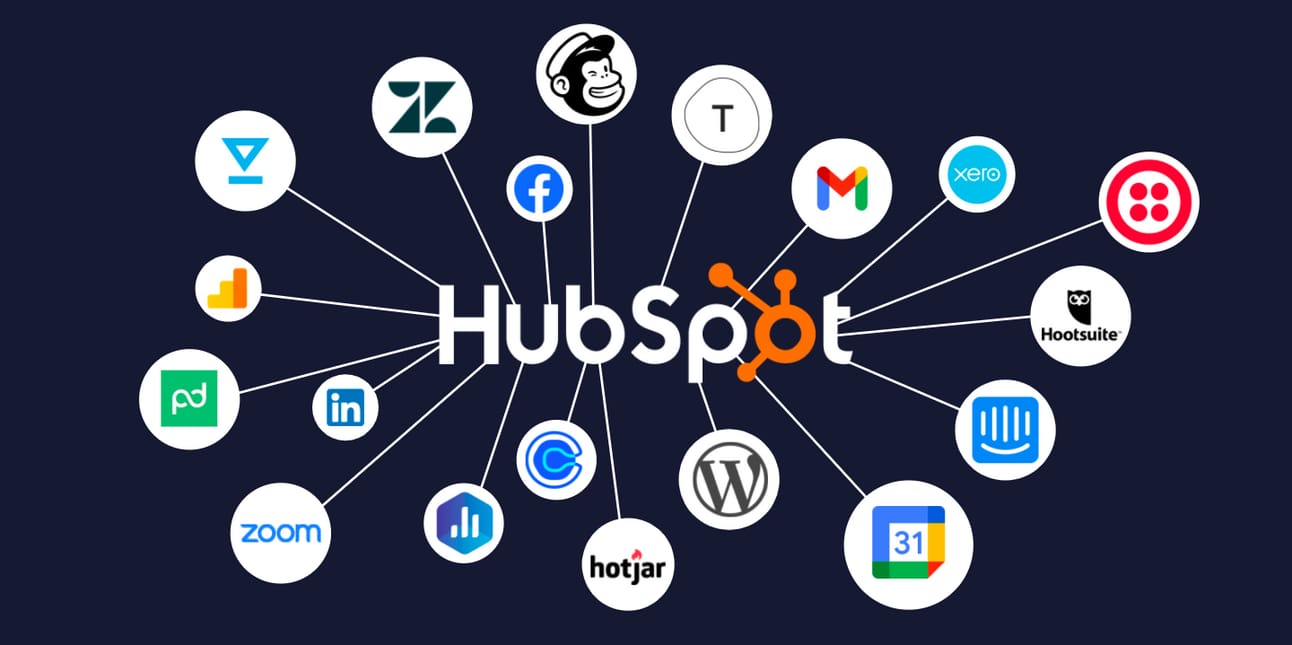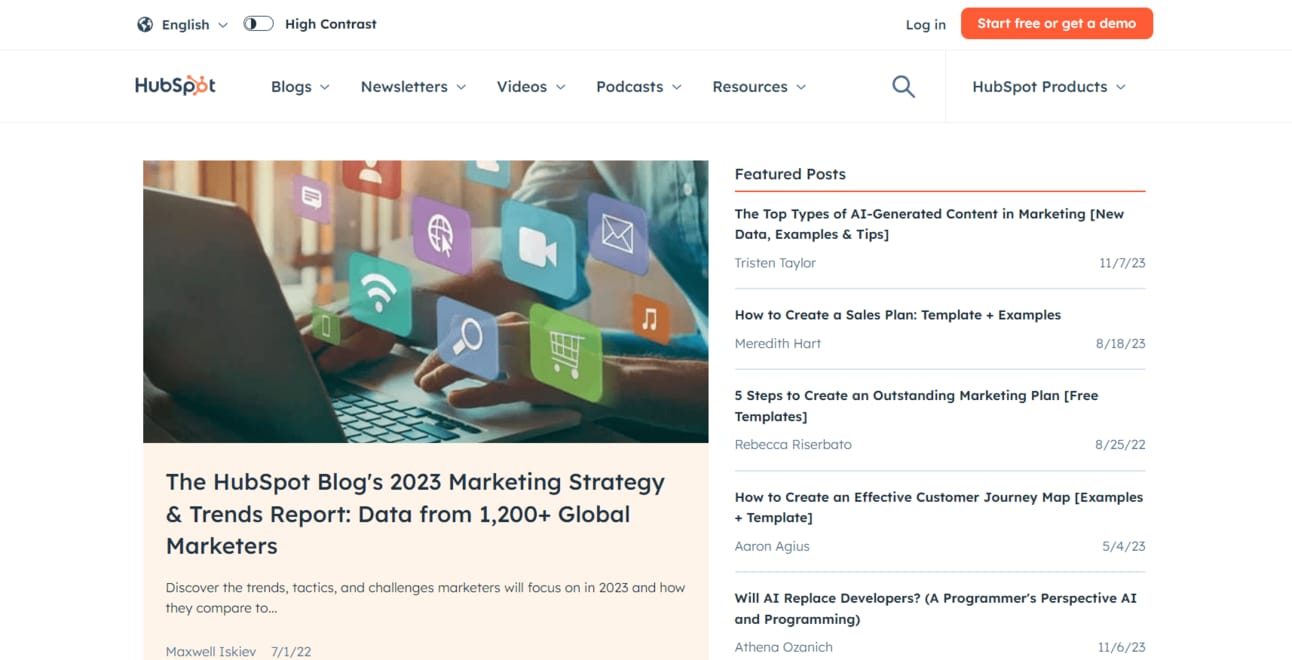Hi everyone 🤝
This is Cameron from The Growth Archive📥
Every week, I highlight my favourite marketing case studies, interviews, and examples that showcase real-world B2B growth marketing strategies you can use in your business right away.
Today’s Issue 📰
Today, I’ve lined up 2 real-world B2B marketing examples that I’ve added to The Growth Archive.
Inside, you'll discover:
Importance of ‘human touch’ in your content marketing strategy (Taken from an almanack in 1732)
How you can become a market leader by branding yourself around one idea (Taken from HubSpot’s inbound marketing strategy)
Let’s jump right into the first example of the week.
The Founding Father Of Content Marketing 🎅

Our pal, Benjamin
In the year 1732,
Benjamin Franklin released a historical masterpiece
"Poor Richard's Almanack."
This wasn’t just another almanack.
It became one of the oldest examples of a successful content marketing strategy that I can find.
This almanack served as a promotional tool for his printing business.
He curated content through the voice of a fictional character named 'Richard Saunders'
Such as weather, poems, sayings, and astronomical data, just like any other almanack during his time.
However, he did something different
He added unique content such as math exercises, and examples of demographics...
Most importantly, he also added his thoughts with his witty sense of humor.
The goal was to make it “both entertaining and useful” - in his own words
Adding his voice was what set him apart from others.
Take a look at this clever stunt:

Franklin created a narrative involving Richard and a rival, Mr. Titan Leeds.
He hooked his readers in by predicting that a “good friend and fellow student, Mr. Titan Leeds was going to die on October 17, 1733, at 3:29 P.M."
While Mr Leeds himself responded in a later edition that "he would die on October 26th"
Franklin encouraged his readers to purchase the next year’s edition if they supported Richard's prediction.
And to build suspense the next year, Franklin mentioned that he was too sick to find out whether Richard or Leeds was correct.
These cliffhangers worked.
This buzz kept readers eagerly buying new editions to see who would ultimately be correct.
Sales skyrocketed, with over 10,000 copies sold in a year.
His Almanack became the second most popular book of its time, second only to the Bible...
Franklin’s story is a timeless lesson in content marketing.
He didn’t just create generic content and shamelessly plug his business any chance he could get.
He focused on the core of what people look for in content.
‘human touch’
And for 25 years, "Poor Richard's Almanack" was a big deal.
It opened doors for Franklin to work with other businesses.
He printed the paper currency for New Jersey, Delaware, and Pennsylvania.
He helped print Bibles
He published Samuel Richardson's 'Pamela', the first novel printed in America
Ultimately becoming one of the biggest influential figures of his time.
HubSpot’s Inbound Marketing Strategy ♟️

Back in 2006, HubSpot started with a massive vision
And that vision was to revolutionize the way people do marketing online.
Instead of the traditional 'outbound marketing'
Which involves tactics like cold emails and cold calls.
They wanted to design a marketing category around treating people like 'humans'.
The goal was to use quality content, various tools, and resources to pull people towards your business.
So they can make their own informed purchase decisions.
They called it 'Inbound marketing.'
It's like 'opt-in marketing' but they made it sound like something fresh and new.
Inbound marketing techniques were not new at all.
You can find early examples of this dating back to Benjamin Franklin’s Almanack in the 1700s
John Deere, an agriculture machinery company, started publishing 'The Furrow' magazine back in 1895.

This publication provided farmers with information on new technology and techniques for efficient farming.
Rather than directly selling John Deere products.
This approach ultimately helped them become a superpower in the agriculture industry.
Reaching over 4 million consumers at its peak!
And they are still publishing the magazine today.
So HubSpot didn't just redesign this term
They owned it in the modern age and became a billion-dollar company
How?
1. They wrote a book about inbound marketing

2. They hosted events called 'Inbound Conference'

3. They created tools around Inbound Marketing.

4. They created a blog around Inbound marketing.

The list can go on and on with the amount of resources..
Instead of just joining the existing trend, they started their own.
Folks are always looking for the next big thing—people who aren't happy with the usual ways of doing traditional marketing.
By pushing inbound marketing, they attracted these early adopters who were excited to be part of something that they felt was innovative.
HubSpot showed that it's not always about having the best product right away.
It's more about getting people excited about your idea instead.
If people believe in what you stand for, they'll stick with you, thinking your product will get better over time.
Just take something that already exists, give it a unique name, and make it sound exciting and new to your target audience.
Own it.
Interested In More B2B Marketing Hacks? 📂
I’ve spent over 100 hours creating a free gallery of 20+ examples you can use in your own business.
All I ask for in return is that you share it with a fellow business owner to show your support :)
It only takes a couple of seconds to keep this project going!
Thank you for reading the Growth Archive!
Subscribe now to receive weekly posts on growth marketing tips from examples, interviews, and case studies that you can implement in your B2B today.
I will mark every new edition with the icon ‘📥’ in the subject line so that you can find it easily.
See you next week!
Cameron Scully (@cameronscully_)



